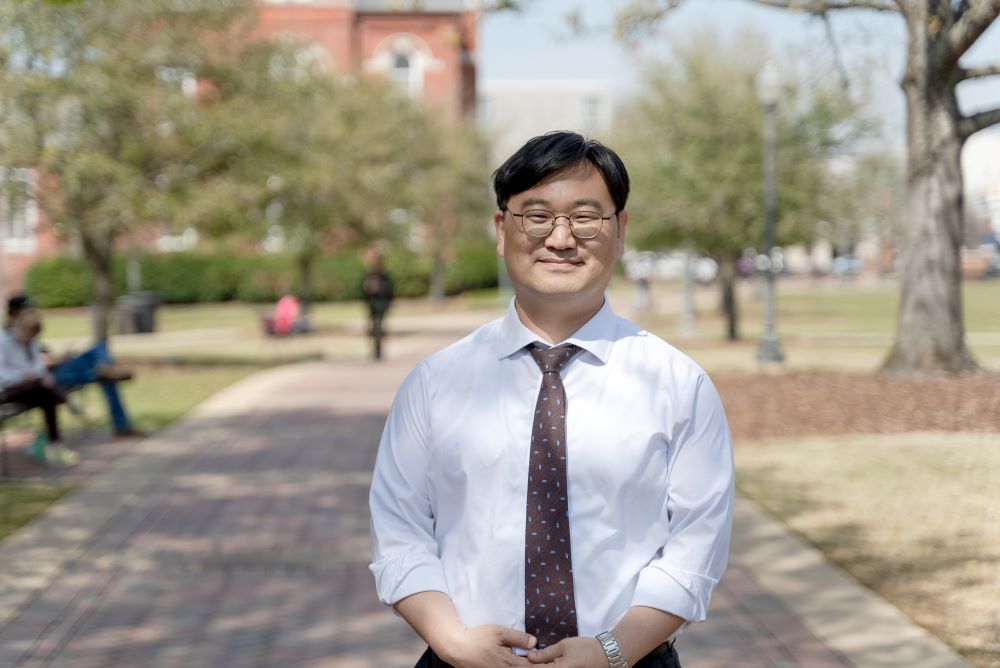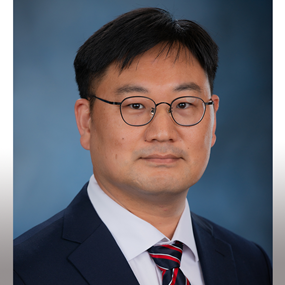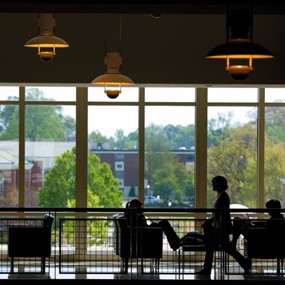Auburn communication professor researching political power of culture ‘beyond K-Pop’

Communication is key to connecting cultures. Associate Professor of Communication Myoung-Gi Chon’s research, recently featured in the National Bureau of Asian Research’s congressional briefing series on U.S.-Korea relations, explains how popularity fuels international politics.
In his commentary, “Beyond K-Pop: Building a bridge between South Korea and the United States through soft power,” Chon applies public relations theory to public diplomacy. He argues that public recognition is a major factor in political strategy.
“There are highly overlapped areas between political communication and public relations,” Chon said. “Public diplomacy is basically this communication process. For example, between the United States and South Korea, we see each other through the mass media and internet. Those are great platforms to bridge countries through soft power, and the goal of public diplomacy is to connect soft power to policy.”
“Soft power” attracts positive attention through culture, values and institutions, emphasizing the strength of influence over force. Korean culture’s popularity in the U.S. through entertainment and consumer goods continues to grow year after year.
K-pop music streams in the U.S. increased more than 180% in the last six years, with artists such as PSY, BTS and BLACKPINK paving the way to American charts. Netflix’s “Squid Game” tops the streaming list with each new season, and in 2020, “Parasite,” directed by Bong Joon Ho, became the first foreign language film to win Best Picture at the Oscars.
South Korean corporations including Hyundai and Samsung continue to make significant economic contributions while Korean food and beauty products line shelves at every major retailer. There is also increased interest among Americans to learn Korean.
According to Chon, this level of cultural influence, called the “Korean Wave” or “Hallyu,” has primed both countries to translate public interest into favorable policies.
“There are few efforts to connect soft power to public diplomacy between South Korea and the United States. That’s why I’m saying that it’s time,” Chon said. “From the view of the Korean government, they need to make an effort to increase the national reputation. They need a consistent foreign policy to support public diplomacy, so basically, American people can support South Korean policies and South Korean people build good relationships with American people in this territory.”
For example, Chon said, if Hyundai invested more into public relations to communicate how its manufacturing plants benefitted the communities around it, the company would help build South Korea’s national reputation, which could translate into stronger U.S.-Korea business arrangements.
At Auburn, Chon hosts opportunities to connect American and Korean culture. In the spring, he invited six South Korean companies to meet Auburn students about to start careers. Each year, he co-hosts a Korean-American grassroots conference. He advises the Korean Student Association and hopes to increase collaboration with Auburn’s Korea Corner and King Sejong Institute.
This summer, Korea Corner will host 20 students from a South Korean university on Auburn’s campus to study and learn about American culture. Korea Corner has also sent teachers to South Korea for work-study programs. The Korea Center-King Sejong Institute offers language and culture classes, the Korean Buddy Program, events and celebrations.
Chon said Auburn is a great place to study public diplomacy because of Auburn’s international student population and its placement in an area of the country experiencing more investment from South Korean companies.
“My goal is to build mutually beneficial relationships between two countries. Soft power is a good mediator,” Chon said. “This project is highly related to this community because more and more Korean companies are coming to the southeast, so this is good ground to study public diplomacy. Even though I’m studying this topic in Auburn, this is a global project.”
Read “Beyond K-Pop: Building a Bridge between South Korea and the United States through Soft Power” by Myoung-Gi Chon at the National Bureau of Asian Research website.







